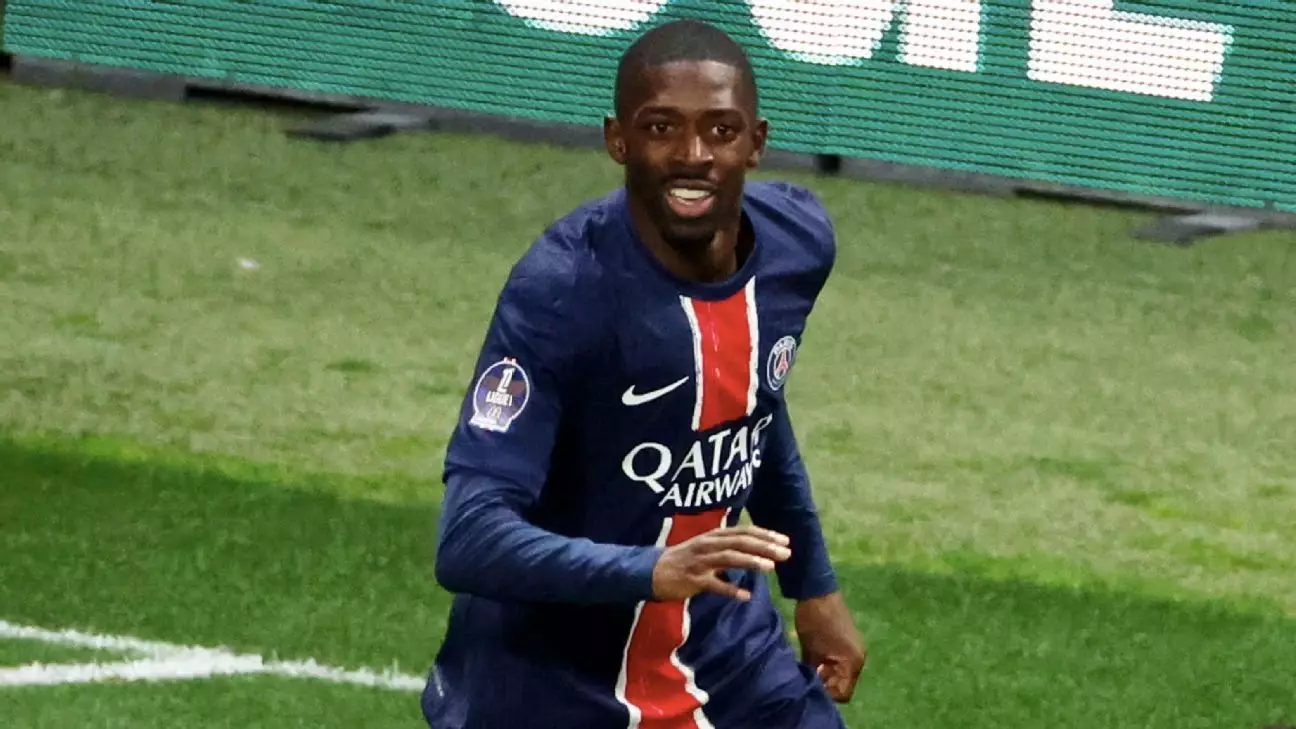In the fast-paced world of football, the weight of expectation can be both a blessing and a curse. Paris Saint-Germain (PSG) coach Luis Enrique recently highlighted this dynamic, reflecting on Ousmane Dembélé’s potential role as the team’s next key scorer. Following a recent match where Dembélé secured a second-half goal in a 1-1 draw with Reims, his performance has sparked discussion about filling the void left by the departure of star player Kylian Mbappé to Real Madrid. Yet, Enrique has taken a prudent stance, emphasizing the importance of collective team effort over individual pressure.
Dembélé’s contributions to PSG this season—boasting four goals and two assists—certainly paint him as a focal point of the team’s attack. However, Enrique is keen to avoid placing undue pressure solely on him. In his post-match comments, he articulated a philosophy geared towards teamwork, stating, “We’re not looking for a goal scorer… What we want is for the team to win.” This statement underscores a critical coaching strategy: success should be a shared endeavor, spreading responsibility across the squad rather than concentrating it on one player.
The path hasn’t been easy for PSG this season. The team arrived at the match against Reims following a gritty victory against Girona in the Champions League, yet they found themselves struggling for rhythm on the pitch. The absence of key players, such as Marco Asensio and Gianluigi Donnarumma due to injuries, added strain to an already challenging match-up. Enrique acknowledged the strength and physicality of the opposing team, which speaks volumes about the evolving competitive landscape in Ligue 1. His remarks reflect an understanding that adaptability is essential for success.
As PSG looks ahead to a packed schedule, including a critical match against Stade Rennais and a European fixture against Arsenal, Enrique’s tactical vision becomes paramount. His confidence in the squad’s versatility is reassuring; “We will change players depending on what we see in the games,” he asserted. This flexibility allows PSG to navigate the hurdles of varying opponents, offering the team a strategic advantage. The idea that adaptations can be made based on real-time observations during matches illustrates an advanced tactical mindset—one that is reactive and forward-thinking.
In embracing a broader team-centric approach over an emphasis on singular talent, PSG under Enrique is illustrating a mature understanding of football dynamics. While individual brilliance like Dembélé’s should be lauded, the team’s collective effort will ultimately determine their success. By fostering an environment where players feel less pressure and are encouraged to contribute as a cohesive unit, PSG cultivates not only resilience within the squad but also a winning mentality. The ongoing season promises to be a fascinating narrative of evolution, strategy, and the quest for victory in the realm of competitive football.
